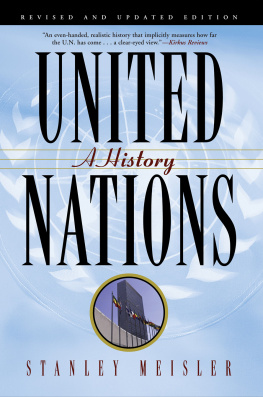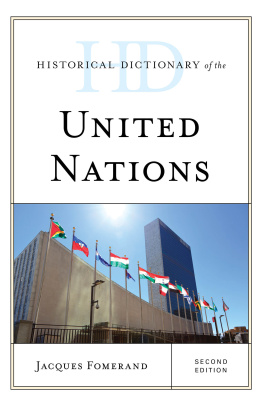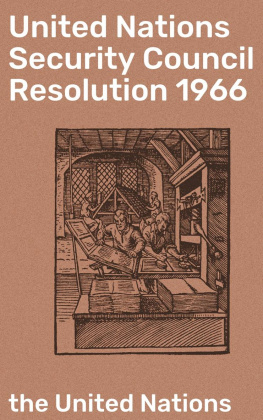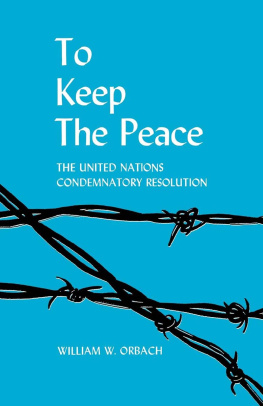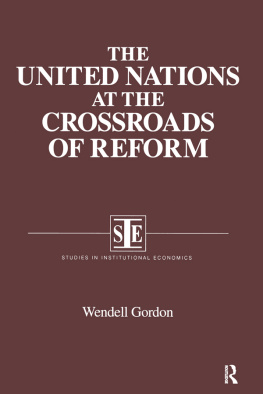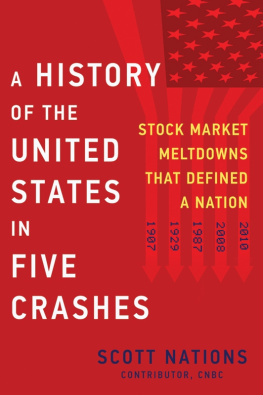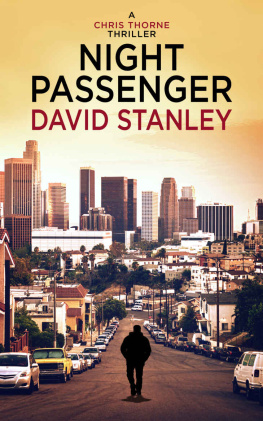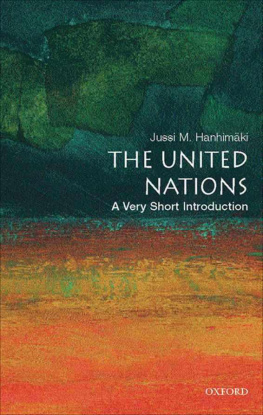Copyright 1995 by Stanley Meisler
Revised edition copyright 2011 by Stanley Meisler
All rights reserved. No part of this book may be reproduced in any form
or by any electronic or mechanical means, including information storage
and retrieval systems, without permission in writing from the publisher,
except by a reviewer, who may quote brief passages in a review.
Scanning, uploading, and electronic distribution of this book or
the facilitation of such without the permission of the publisher
is prohibited. Please purchase only authorized electronic editions,
and do not participate in or encourage electronic piracy of copyrighted
materials. Your support of the authors rights is appreciated. Any member
of educational institutions wishing to photocopy part or all of the work
for classroom use, or anthology, should send inquiries to
Grove/Atlantic, Inc., 841 Broadway, New York, NY 10003
or .
Published simultaneously in Canada
Printed in the United States of America
ISBN-13: 978-0-8021-9499-2
Grove Press
an imprint of Grove/Atlantic, Inc.
841 Broadway
New York, NY 10003
Distributed by Publishers Group West
www.groveatlantic.com
A Note from the Author
A s a sophomore at James Monroe High School, I was one of those, armed with a blanket, who took a bus across the Bronx one evening in 1946 to sleep outside Hunter College for a chance to see the United Nations Security Council in action. It was not a sleepless, backbreaking night. After a couple of hours, a burly but kindly New York City policeman handed us little numbered tickets and told us to go home. When we returned the next morning, we were placed into the front of the line according to our numbers.
I cannot remember much about the gymnasium that served as the site or about the discussions onstage. But I do remember some of the dignitaries that I recognized from illustrations in the New York Times and the newspaper PM: a well-groomed Edward R. Stettinius Jr. with elegant white hair, an overstuffed and serious Trygve Lie, a dour, enigmatic Andrey Gromyko. The topic of the day has long escaped me. Perhaps it was Iran. But I was impressed by the interpreters who stood up after every speech to render versions in English, French, and Russian. Simultaneous interpretation had not yet arrived. At one point, Gromyko interrupted the English interpreter to correct him. I remember wondering why Gromyko bothered to speak in Russian if he knew enough English to correct the interpreter. All in all, it was a wondrous day, for we sensed that these great figures were playing history in front of us.
As a foreign correspondent many years later, I never boasted to my colleagues that I was once willing to sleep all night on the ground outside Hunter College for a glimpse of the Security Council in action. I would have been stamped as hopelessly nave. The U.N. fell into bad repute during my two decades as a foreign correspondent from the late 1960s to the late 1980s. Reporters did not expect much from the U.N. or cover it very thoroughly. They did not go around proclaiming ties to it. The U.N., in fact, was a hypocritical irritant, especially in Africa, where I began my work. The U.N. blathered on day after day about the terrible injustice of South Africa but closed its eyes to horrors like the enervating civil war and the legions of bloated Biafran babies in Nigeria, the blatant genocide of the Hutus in Burundi, and the unabashed evil of a cunning and cruel Idi Amin in Uganda. These blights were at least as terrible as that of South Africa and, in fact, depressed me even more, for I had expected so much better of newly independent Africa.
In 1991, during the Persian Gulf War, the Los Angeles Times assigned me to cover the United Nations. There was a new mood. With the Cold War over, the United States and the Soviet Union (soon to split into Russia and others) could now cooperate and perhaps order the world the way some of the founders of the U.N. intended. The Security Council realized its relevance now, and the corridors rustled with confidence and tension. This mood would dissipate in a few years, but diplomats and bureaucrats would still hold on to a sense that their U.N. mattered.
There is a hoary notion, common among journalists who do not work there, that the U.N. must be a boring place. That notion comes from the stupefying image of hordes of delegates (there are now 192 in 2011) droning on in interminable, insignificant speeches for home consumption. But the most important work of the U.N. takes place within the Security Council, which has fifteen members who waste little of their time speechifying. The work of the council gets done behind closed doors in many hours of wrangling, cajoling, pleading, arguing, and threatening. For better or worse, the final decisions affect the course of events in troubled zones throughout the world from Haiti to Bosnia to Somalia to El Salvador. The closed-door sessions are far from boring, and a reporter soon uncovers the tension and conflict through later conversations with the ambassadors. It is not cops-and-robbers stuff, but it is diplomatic reporting of a high order.
I suppose those who look on the U.N. as a boring talk shop have no time for its history as well. Yet that is even more of a foolish notion. The history of the United Nations bristles with excitement, for the U.N. involved itself with some of the momentous events of the last half-century: the end of World War II, the birth of Israel, the Korean War, the Congo, the Suez crisis, the Cuban missile crisis, the invasion of Cyprus, the Six-Day War, the Persian Gulf War, Somalia, Bosnia.
There has been great drama as well in the story of the U.N. as an institution. It has lurched up and down since its beginnings like a well-plotted movie. The U.N. was created amid fancy hopes and great expectations that were quickly snuffed by the Cold War. But it nevertheless found itself a niche dealing with those troubles like Israel (in the early days) and Cyprus and the Congo and Suez that were only on the fringes of Cold War rivalry. But the fortunes of the U.N. plummeted in the late 1970s when the Third World engulfed it and, with Soviet acquiescence, turned the U.N. into a screeching storm of anti-Western and anti-American invective. Those were the days of Kurt Waldheim and the Zionism Is Racism resolutionthe nadir of U.N. history. Fortunes and hopes then rose just as fast as they once plummeted as the Berlin Wall collapsed, the Cold War ended, and the United States induced the Soviet Union and the rest of the Security Council to help turn back Saddam Hussein after his invasion of Kuwait. But the enervating frustrations of Somalia and Bosnia dashed many of the hopes, and, on the eve of its fiftieth anniversary, a mature and chastened U.N. wrestled with the nature of its role in the postCold War era.
I have tried here to set down the drama, excitements, and significance of the first fifty years of the United Nations. And I have also tried to depict some of the figures like Dag Hammarskjld and Ralph Bunche and Adlai Stevenson who personified the organization over the years and set its mood. This is not a history of resolutions and speeches. In the words of the American poet and playwright Archibald MacLeish, who wrote the preamble to the U.N. Charter, the United Nations was created to save succeeding generations from the scourge of war, and I have written mainly about how it has tried and often failed to do just that.


